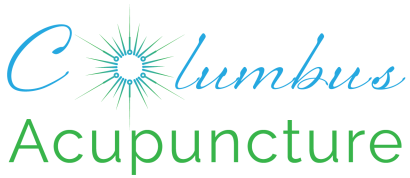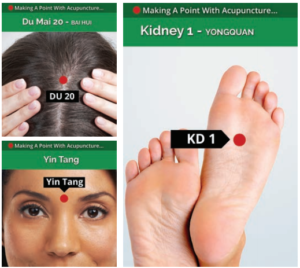
2520 California St, Ste G
Columbus, IN 47201(812) 374-4518
- Monday9am-4pmTuesday9am-5pmWednesdayclosedThursday9am-5pmFriday9am-5pmSatclosedSunclosed
-
Latest Articles:
- • Add These 10 Immune-Boosting Foods to Your Fall Diet •
- • Keep Your Skin Healthy and Glowing with these Fall Skincare Tips •
- • Beat End of Year Burnout with these Fall Self-Care Rituals •
- Sign up to receive news and updates and get my free report:“The Top 10 Reasons to Try Acupuncture”

Uncategorized
Acupuncture for Acid Reflux
 Acid reflux is very common in today’s world. Statistics show 60 percent of the adult population in the United States will experience some type of gastroesophageal reflux disease or GERD at some point in their lives. Currently there are seven million people in the U.S. living with some form of GERD. Acid reflux is the acute form of GERD, but it can become chronic and create much bigger problems for the sufferer. Acid reflux can affect anybody, including infants. It occurs when the muscle at the end of the esophagus, the lower esophageal sphincter (LES), doesn’t close properly or tightly enough. This allows digestive juices and stomach content to “back up” into the esophagus. Modern medicine treats acid reflux with medications like Omeprazole. However, long term usage of this medication can lead to kidney failure.
Acid reflux is very common in today’s world. Statistics show 60 percent of the adult population in the United States will experience some type of gastroesophageal reflux disease or GERD at some point in their lives. Currently there are seven million people in the U.S. living with some form of GERD. Acid reflux is the acute form of GERD, but it can become chronic and create much bigger problems for the sufferer. Acid reflux can affect anybody, including infants. It occurs when the muscle at the end of the esophagus, the lower esophageal sphincter (LES), doesn’t close properly or tightly enough. This allows digestive juices and stomach content to “back up” into the esophagus. Modern medicine treats acid reflux with medications like Omeprazole. However, long term usage of this medication can lead to kidney failure.
The alternative to pharmaceuticals with harsh side effects is Traditional Chinese Medicine (TCM). TCM has been around for nearly 3,000 years and it has a very good track record for treating this condition. TCM uses things like acupuncture, single herbs and herbal formulations to treat acid reflux. According to TCM theory, acid reflux is usually caused by emotional upset and ingesting the wrong foods.
Acupuncture is a medical modality that uses tiny, hair-thin needles to stimulate the body’s own ability to heal itself. For acid reflux, there is an acupuncture point that works wonders. This point is known as Pericardium 6. It is located two thumb widths above the wrist crease on the underside of the arm, between the two visible tendons. Pericardium 6 is frequently used to calm anxiety, relax the chest and decrease rebellious energy or Qi (pronounced “chee”) from rising up in the esophagus. So, based on the theory acid reflux is caused by emotional distress, Pericardium 6 would be an excellent choice to stimulate. Acupuncture, in general, is very effective at calming the mind and quieting anxiety. When the mind is calm, the stomach will settle also.
Acupuncture is just one component of TCM. The use of herbs and herbal formulations is also an integral part of TCM. Licorice root, also known as gan cao, is one such herb that can help with acid reflux. Gan cao is used in many herbal formulations, but by itself it can also soothe the esophagus with mucus. The mucus contributes to cellular healing of the esophageal lining over time. Green tea is another herb that can be used to treat acid reflux. Green tea stimulates the lower esophageal sphincter and prevents stomach acid from refluxing back into the esophagus.
There are specific herbal formulations that can be used to combat acid reflux as well. One of the more commonly used formulas is liu jun zi tang. The herbs in this formula help to calm the stomach and expel excess dampness. The one nice thing about TCM is it is completely customizable. So a practitioner can develop a customized formula based on the patient’s needs. This is much different from the cookie cutter approach to healing utilized by modern medicine.
If you or somebody you know suffers from acid reflux or GERD, consider giving TCM a try. There are hundreds of licensed practitioners all across the country and there might just be one in your neighborhood too.
Ginger and Its Uses in Acupuncture
 Ginger is a common spice once considered a luxury. Ancient Chinese and Indians used the root of the ginger plant as a tonic to treat various common ailments. Ginger originated in Southeast Asia, but since then it has been widely cultivated all around the world. At its height in popularity during the 14th century, ginger cost about the same as a piece of livestock. Today, ginger can be found in almost every local grocery store and is used worldwide.
Ginger is a common spice once considered a luxury. Ancient Chinese and Indians used the root of the ginger plant as a tonic to treat various common ailments. Ginger originated in Southeast Asia, but since then it has been widely cultivated all around the world. At its height in popularity during the 14th century, ginger cost about the same as a piece of livestock. Today, ginger can be found in almost every local grocery store and is used worldwide.
So what makes ginger such a special herb? Its versatility. Ginger can be used for many different issues. The dominant property of ginger is that it is warming. Some people associate this with being spicy. The truth is, after a person eats ginger, the body will feel a little warmer. Over time, eating ginger daily can actually increase the body temperature. This is great for those who suffer from blood deficiency and a feeling of constant cold. This also helps people who suffer from aches and pains that flare up during the cold weather.
Ginger is frequently used to help treat digestive problems. It can effectively reduce nausea, whether it’s from morning sickness or chemotherapy. Because of its warming properties, it also aids in stimulating digestion. Grating ginger and adding it to water daily can be very beneficial for the digestive tract.
Another way ginger is used is to help treat colds or the flu. Combining ginger with scallions and making a hot water broth can help kick out a cold quickly. The combination of scallions and ginger will heat the body up, making you sweat a little. This may be just what is needed for sweating out the infection.
Ginger can also be used to treat food poisoning or dysentery. Ingesting ginger increases the secretion of gastric juices. This helps the body digest food more quickly. Ginger also creates an inhospitable environment for toxic bacteria in the gut. By increasing digestion, the toxins can be excreted quickly.
Pain and inflammation are rampant in the world today, but ginger can provide some relief. Studies show ginger consumption can reduce muscle aches and pains. Ginger has also been used in studies on cancer, showing decreased inflammation in the body.
One last way ginger consumption can benefit the body has to do with the cardiovascular system. Ginger has been shown to reduce cholesterol, which can lower the incident of heart attacks.
Ginger is used frequently in many of the herbal formulas Chinese medicinal practitioners prescribe. If you or somebody you know suffers from any of the aforementioned conditions, it might be a good idea to consider using ginger.
Beating Stress and Staying on Task
 The dictionary defines stress in multiple ways, but only one matters when we discuss how stress affects our physical bodies. Stress is defined as a physical, chemical or emotional factor that causes bodily or mental tension. Stress actually does have a function in our bodies. Stress is the body’s way of signaling for help or a break in the routine. If we don’t listen to these signals, we can develop imbalances in our bodies, which can then lead to illnesses.
The dictionary defines stress in multiple ways, but only one matters when we discuss how stress affects our physical bodies. Stress is defined as a physical, chemical or emotional factor that causes bodily or mental tension. Stress actually does have a function in our bodies. Stress is the body’s way of signaling for help or a break in the routine. If we don’t listen to these signals, we can develop imbalances in our bodies, which can then lead to illnesses.
Cortisol is the hormone most closely related to stress. Cortisol is a big component of the “fight or flight” response we feel when we are scared or threatened. In small bursts, cortisol is helpful. However, when stress becomes chronic, then the cortisol levels become elevated. This puts the body in a constant state of being on edge, eventually causing insomnia, depression, anxiety, digestive issues and even mental illness.
Traditional Chinese Medicine (TCM) provides many ways of combating stress and keeping our minds focused. Here are just a few examples of how this ancient medical system can help.
Acupuncture for Stress: Acupuncture acts like physical therapy for the nervous system. Tiny needles retrain the nervous system and brain to behave as it should normally. For the nervous system to act and respond accordingly, cortisol has to be at normal levels and only used when a true “fight or flight” situation occurs. Studies show acupuncture does this.
Acupuncture reduces stress by keeping the heart rate normal. When the body is stressed, the heart tends to pump faster, and in some cases, a person may even develop heart palpitations. Our heart rate is closely connected to our vagus nerve. If the vagus nerve is stimulated, so too will the heart rate. There are specific acupressure points on the arms and hands that calm the vagus nerve and the heart.
Acupuncture Points for Stress and Focus:
 · Yin Tang – Yin Tang is located directly between the inner edges of the eyebrows. It is a reflex point of the pituitary gland. Yin Tang calms the mind and relaxes the body by helping control hormone secretions.
· Yin Tang – Yin Tang is located directly between the inner edges of the eyebrows. It is a reflex point of the pituitary gland. Yin Tang calms the mind and relaxes the body by helping control hormone secretions.
· Kidney 1 – Kidney 1 is located on the bottom of the foot, at the junction of the anterior one third and posterior two thirds of the line connecting the base of the second and third toes and the heel. Kidney 1 can sedate and calm the mind, while also regulating blood flow to the upper part of the body, aka the brain.
· Du 20 – This point is located on the top of the head, midway between the apexes of both ears. Du 20 has been noted to improve mental clarity and awareness, while also enhancing memory.
Chinese Herbal Formulas for Stress and Focus: Combinations of herbs, known as formulas are used frequently in TCM. An herbal formula known as Bu Nao Wan is frequently prescribed for people who have memory problems related to weakness in the kidney system of TCM. Several of the herbs in this formula have been used for centuries to calm the mind and improve focus.
Xiao Yao San is another popular TCM formula that is used frequently to address stress. This formula is knowns as “Free and Easy Wanderer” because it helps remove any stagnation in the energetic pathways that can lead to stress and difficulty focusing or staying on task.
Nutrition for Stress and Focus: Proper nutrition is vital for everyone. But when it comes to stress and focus, nutrition for the kidneys is crucial. The kidneys are the source of our vital essence and if damaged, our health will suffer. Foods like black beans, kidney beans, asparagus, plums, blueberries and blackberries are all beneficial for strengthening the kidneys.
As you can see, TCM is a great way to deal with stress. If you are having difficulties dealing with stress, contact me to see what we can do to get you back on track.
CITATIONS:
https://www.huffingtonpost.com/2013/03/16/acupuncture–could–help–prevent–stress_n_2883996.html
http://www.acupuncturetoday.com/mpacms/at/article.php?id=27927
http://blog.aoma.edu/blog/chinese–medicine–for–stress–relief
https://www.consciouslifestylemag.com/foods–for–anxiety–body–calm/
Acupuncture and Stress
 A study published in the Annals of Yoga and Physical Therapy looked at how acupuncture treatments affect stress levels in administrative workers at a local hospital. The study included 58 participants who reported high levels of stress associated with their jobs. The participants were treated with eight weeks of auricular acupuncture. After the eight acupuncture sessions, the workers reported their stress levels had decreased from high to moderate. The study hypothesizes reduced stress levels are associated with regular acupuncture treatments due to the release of neurotransmitters in the body. This study and many others are providing evidence that acupuncture can indeed decrease stress levels and improve overall health.
A study published in the Annals of Yoga and Physical Therapy looked at how acupuncture treatments affect stress levels in administrative workers at a local hospital. The study included 58 participants who reported high levels of stress associated with their jobs. The participants were treated with eight weeks of auricular acupuncture. After the eight acupuncture sessions, the workers reported their stress levels had decreased from high to moderate. The study hypothesizes reduced stress levels are associated with regular acupuncture treatments due to the release of neurotransmitters in the body. This study and many others are providing evidence that acupuncture can indeed decrease stress levels and improve overall health.
Stress is defined as either pressure or tension exerted on an object or a state of mental or emotional strain resulting from adverse or demanding circumstances.
Here are some facts from the Global Organization for Stress:
- Americans report higher levels of stress than most people in other countries around the globe.
- Surveys show nearly one out of 75 people worldwide, experience panic attacks.
- Stress in American teenagers is now one of the top health concerns and it is being found that teenagers experiencing stress are more likely to develop long-term health problems.
- We all experience stress in our lives.
- But learning how to deal with it can be crucial for a happy, healthy life.
One way to deal with stress involves the use of a 3,000 year old medical system, known as Traditional Chinese Medicine or TCM. TCM uses many different modalities or tools to treat the human mind and body. The most commonly used modality is acupuncture. And while acupuncture is still not widely accepted in the United States, it is gaining ground.
Studies show acupuncture can reduce stress when used regularly. The Journal of Endocrinology published a study showing stress hormones, like cortisol, were lower in rats that had received electroacupuncture. The use of electroacupuncture actually blocked the chronic stress hormones in the rats. It does the exact same thing for humans. TCM practitioners have known this for thousands of years and they didn’t need the research to prove it.
Specific acupuncture points on the body are better for relieving stress and are used frequently by licensed practitioners. One of these points is Yin Tang. Yin Tang is located directly between the inner edges of the eyebrows. It is a reflex point of the pituitary gland. Yin Tang calms the mind and relaxes the body by helping control hormone secretions.
Another acupuncture point, Kidney 1, is not as frequently used because of its location. But it can work wonders for decreasing stress. Kidney 1 is located on the bottom of the foot, at the junction of the anterior one third and posterior two thirds of the line connecting the base of the second and third toes and the heel. This point is VERY sensitive, but it has amazing properties. Kidney 1 can sedate and calm the mind, while also regulating blood flow to the upper part of the body, aka the brain.
There are other tools as TCM practitioners we can use to relieve stress, such as cupping and herbs. But acupuncture and acupressure tend to work the quickest. Ask me to find out more!
CITATION: https://www.researchgate.net/profile/Cleria_Maria_Bittar2/publication/319186420_Annals_of_Yoga_and_Physical_Therapy/links/599a18daa6fdcc261586b19b/Annals–of–Yoga–and–Physical–Therapy.pdf
How Stress Physically Affects Your Body
 Stress. It’s not a word that makes most of us feel elated or excited. However, stress, by design, is the body’s way of signaling for help or a break in the routine. If we don’t listen to these signals, we can develop imbalances in our bodies, which can then lead to illnesses.
Stress. It’s not a word that makes most of us feel elated or excited. However, stress, by design, is the body’s way of signaling for help or a break in the routine. If we don’t listen to these signals, we can develop imbalances in our bodies, which can then lead to illnesses.
The dictionary defines stress in multiple ways, but there is only one that matters when we discuss how stress affects our physical bodies. The definition is this, “stress is a physical, chemical or emotional factor that causes bodily or mental tension”. The definition itself indicates stress can affect our bodies.
One of the most visible way stress affects our bodies is our appearance. People who are under chronic pressure and stress tend to look older and fatigued. This happens because cortisol, the stress hormone in our bodies, builds up, which then increases the amount of free radicals in skin cells. Free radicals damage the skin cells causing them to become dull and dehydrated. Women typically show this more than men.
Another big player in the stress game is digestion. Many people today suffer from heartburn and upset stomach on a regular basis. These symptoms can be caused by excess stress. Stress causes the body to alter gastrointestinal motility by moving blood normally used in the digestive process, away from your belly and midsection, as part of the “fight or flight” response that usually occurs when you are stressed. Thus, the lack of blood and fluids in the gastrointestinal tract can lead to increases in stomach acid, causing stomach upset and heartburn.
Minor stress will stimulate the immune system which helps us heal from illness and disease. However, chronic stress can actually compromise the immune system, once again due to the cortisol hormone. Chronic stress sufferers tend to get sick more often and the illnesses may last longer. This is also a factor in people who develop terminal illnesses like cancer.
Excess stress can cause your heart to work too hard and usually for too long a period. These factors can then lead to sustained increased blood pressures or hypertension. Hypertension puts more stress on your blood vessels, which can increase your possibility of a stroke or heart attack.
Chronic stress can also be detrimental to your muscles and can then lead to chronic aches and pains. Muscles are supposed to tense up when under stress. But when you are constantly stressed, the muscles never get the chance to completely relax. Tight muscles result in headaches, back, neck and shoulder pain. Over time, those tight muscles and chronic pain can cause many to seek pain relief through prescription pain medications.
That’s the bad news. The good news is you can address and treat stress naturally. Getting proper nutrition and removing stressors will help greatly. Acupuncture is also a wonderful tool for fighting stress. As few as two needles can reset your body and decrease your daily stress levels. Another method is to couple acupuncture with practices like qigong, tai chi, and/or meditation. Talk with an acupuncturist to find out how to resolve your stress the natural way.


